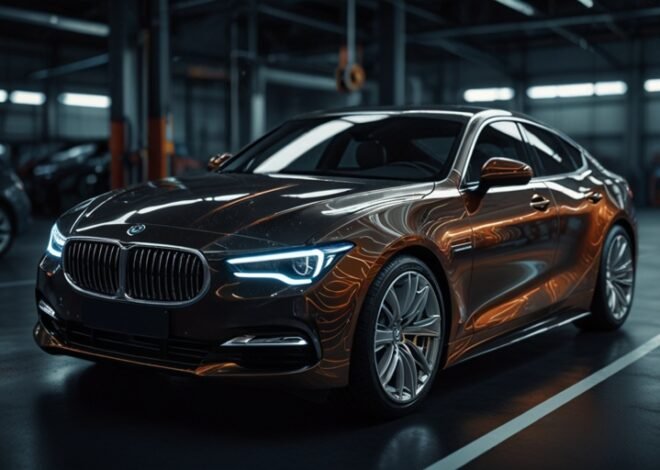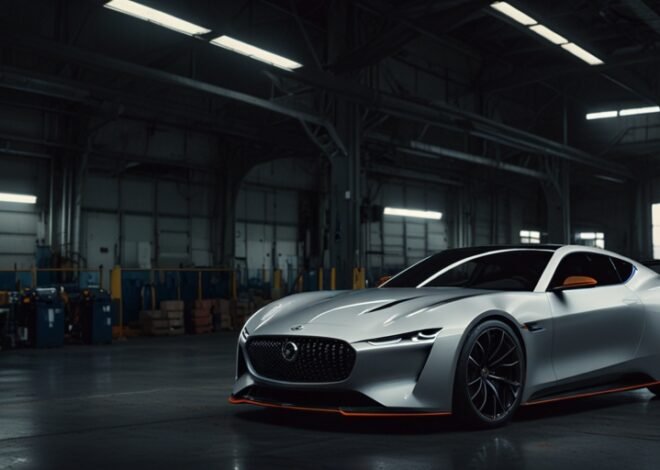
Toyota Unveils Next Generation Hybrid Technology
Toyota Motor Corporation has announced a major innovation on its hybrid cars that will transform future models of fuel efficient and high performance. The Japanese automaker, already on the cutting edge of the hybrid powertrain technology, unveiled its next generation system that pairs a super lean burning gasoline engine with more potent electric motors and a new battery.
HEV-X is the new system, under development at Toyota, that will enhance energy efficiency by 30% in contrast to the present hybrids and also the power and handling efficiency. The engine of the system is totally new and is a 2.0-liter four-cylinder power plant that uses the Atkinson cycle. This is complemented with two electric motors one power the front wheels and another the rear axle for all wheel drive layouts.
However, it seems that the most profound improvement comes in the form of the new lithium-ion battery pack. Toyota and their engineers have designed an all-new electrode material as well as cell structure that raises energy density by 50 percent compared to hybrids now on the market. This helps to increase the electric only range and also provides better electric torque when coupled with the gasoline engine.
Toyota Motor’s President, Mr. Koji Sato speaking during a press conference at the Company’s headquarters in Toyota City said and I quote “We need to advance the hybrid system at the same time as expanding the electrification.” Sato added that while we remain focused on accelerating our battery electric vehicle offerings, internal combustion engine hybrids will continue to ensure reduced global CO2 emissions for decades more. “This new system is significantly greater in terms of hybrid performance and efficiency,”
Toyota has announced that it is looking to start integrating the HEV-X system into new models from the 2025 fiscal year, with the company’s RAV4 and Camry models expected to get the first updating. Altogether the company has set a goal that by 2030 the new technology will be fitted in more than 80% of its global hybrid sales.
Predictably, commentators have welcomed Toyota’s ongoing commitment to hybrids, which reinforces the company’s stratagem of having a wide range of powertrain choices to successfully accommodate global customers and infrastructures. “This places Toyota in a position to continue to lead in electrification, while managing risks thrown up by unpredictable rates of EV penetration and progress on charging networks,” auto industry consultant Hiroshi Tanaka added.
It has also been warmly welcomed by environmental organisations as distant, long-term targets which are easier to challenge but will not have much effect on emissions for a long time. “That is why highly-efficient hybrids can have a strongly positive impact – as long as the goal is not set at zero, which would still be ideal – especially if the mass-markets for EVs are in regions where EV charging infrastructure is still in development,” Keiko Sato of the Japan Climate Action Network.
The company has gained a competitive advantage, particularly in leadership of the hybrid market in Japan and internationally. The new system is intended to assist Toyota in retaining its competitive advantage as competition in electrified automobiles continue to increase. Honda and Mazda two of the leading automobile manufacturers from Japan also, are exploring into the next generation hybrids as well as launching the electric vehicles campaigns.
The HEV-X system will be mass produced in Toyota’s Honsha plant located in Aichi Prefecture, where the plant is being expanded to incorporate the additional system. Hybrid related manufacturing and research facilities which the company intends to release over the next 5 years exceeded 500 billion yen ($3,500,000,000).
While Toyota is readying this new hybrid technology, both inside and outside the company, there are calls for Toyota to move quicker to EVs. Still, it argued that such a portfolio of electrification strategies which intersect hybrid vehicles, plug-in hybrid electric vehicles, battery electric vehicles, and hydrogen fuel cell electric vehicles is the most effective way to combat overall carbon figures taking into account market demands worldwide.
With this latest innovation, Toyota looks forward to strengthening its dominance in the creation of electrified vehicles as well as encouraging the global manufacture of practical cars that any consumer can afford. With the automotive industry set to go through its most transformational shift, the future of Toyota’s hybrid strategy may well determine the speed and scale of electrification around the world.


